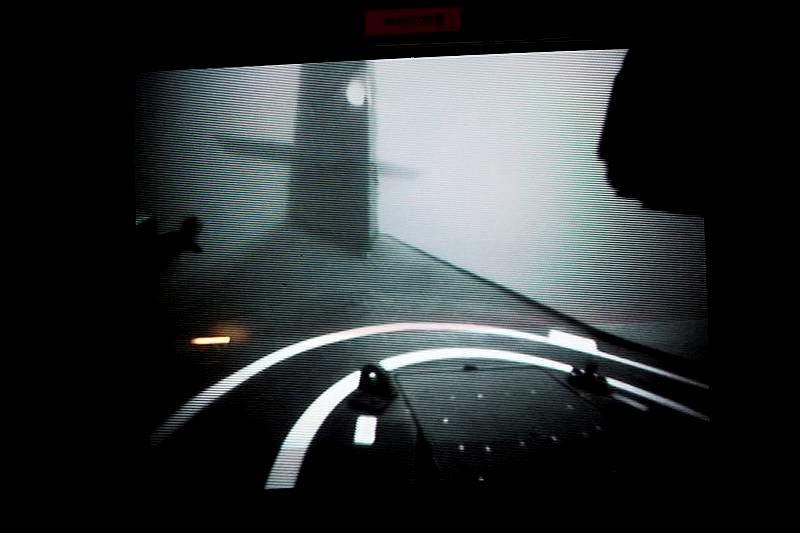Future submarine: hybrid or Australian fitout?
Posted By Peter Briggs on February 16, 2015 @ 12:30
I think the Option J scenario has finally reached some equilibrium – competitive evaluation it is. But I do wonder at suggestions that we should do a hybrid build or build overseas and then fit out in Australia. Both ideas seem to come from people who have never built a submarine and have little idea as to how it’s done. Both options would significantly increase total cost to Australia and risks.
Modern submarine construction techniques (of which Collins was an early example) involve the assembly of major sections of the internals on ‘platforms’ (deck sections), with suitable shock- and noise-mountings in place, then sliding those into open hull sections (like an oven tray) before finally (and as late as practical in the construction) assembling the hull sections into the pressure hull. This has the additional benefit of allowing these platforms to be fabricated at other sites—as was done for Collins with Forgacs Engineering in Newcastle and Perry Engineering in Adelaide manufacturing platforms.
By utilising special jigs to handle the platforms and supply the necessary power and cooling, individual pieces of equipment and systems can be powered up and tested at each stage to ensure they are working correctly before being integrated into the hull. Correcting a fault at this stage is significantly quicker and cheaper than once it is buttoned up inside a submarine. The strategy is to preserve the best access possible until as late as possible in order to avoid expensive and time consuming re-work once the hull comes together.
ASC is now replicating this technique in the first 24-month Full Cycle Docking now underway on HMAS FARNCOMB; with a full-circumferential hull cut and an access opening cut above the engine room to allow removal of the main motor and diesel generators. The 24-month FCD is currently well ahead of schedule. I don’t know how Japan builds submarines; I’m told anecdotally that they were impressed by the facilities at ASC, and left with copious notes. But the idea that we could or should replicate the LHDs and fit the hull out or assemble major sections here flies in the face of this hard-earned wisdom.
The concept of progressive testing; starting with individual equipments, then the systems they make up, followed by the whole platform and combat systems, then sea acceptance trials, and finally, the operational evaluation of the submarine as part of the delivery and acceptance process is fundamental to achieving a certified, technically-validated and capable submarine.
To ensure safe submarine operation, the crew must be trained and assessed to ensure that the ships company is competent and proficient in all modes of operation, ready in all respects and in lock-step with each increasing level of risk in the sea trials program. This commences with individual training, then team training in shore simulators and test sites, before safety and operational training and evaluation at sea. .
It’s a graduated process occurring under the supervision of an experienced Submarine Sea Training Group who set standards and run the assessment. All onboard have to achieve the necessary standard or find themselves with a new career path; there can be no compromise in submarine safety.
Thus, there are substantial benefits in having the Navy crew standby the submarine during its construction; to witness and participate in system tests, operate the submarine on behalf of the shipbuilder for its sea trials prior to its handover and acceptance by the Navy, and then work it up before it joins the Navy as an operational submarine. In the case of the first submarine, additional tests are required, including an operational test and evaluation period to establish what the submarine is capable of in realistic operational scenarios. No one else has quite the same investment as the crew in seeing that the submarine and its systems are correctly built and operated safely!
The overhead in dollars and people of trying to do this overseas or—worse—split between an overseas build-yard and Australia fitout should not be underestimated. The task is much easier to do if we build in Australia, allowing full access to the test ranges, weapons and their specialised support depots and shore simulators for crew training. This avoids duplication as all those facilities will be required throughout the life of the submarine. Some of these facilities contain sensitive technology that’s best protected in Australia.
Moving crew members, supervisory engineers and industry specialists (and their families) between Australia and an overseas build-yard involves more than air fares—I can think of no more certain way of creating the next Submarine Arm Manpower crisis!
My earlier posts (here [2] and here [3]) set out the wider capability, cost and strategic arguments for building all the submarines in Australia. It is time to prick the thought-bubble of hybrid construction or overseas build/local fitout and focus on delivering the best capability for money that we can afford—built, tested and supported in Australia.
I note recent suggestions floating 8-12 submarines—preparing the ground for the Defence White Paper perhaps? There are sound strategic, personnel and industrial reasons why we should build at least 12 and move to a continuous-build program.
Peter Briggs is a retired RAN submarine specialist, submarine commanding officer and past president of the Submarine Institute of Australia. Peter has no affiliations with any of the potential suppliers to the RAN’s SEA 1000 project. Image courtesy of Department of Defence [4].
Article printed from The Strategist: https://aspistrategist.ru
URL to article: /future-submarine-hybrid-or-australian-fitout/
URLs in this post:
[1] Image: https://aspistrategist.ru/wp-content/uploads/2015/02/20131118ran8098578_078.jpg
[2] here: https://aspistrategist.ru/why-australia-should-build-its-own-submarines-1/
[3] here: https://aspistrategist.ru/why-australia-should-build-its-own-submarines-2/
[4] Department of Defence: http://images.defence.gov.au/20131118ran8098578_078.jpg
Click here to print.
